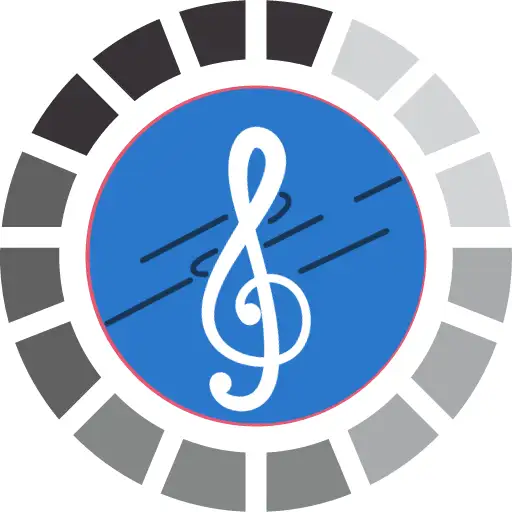The nursery rhyme “Pop Goes the Weasel” is a classic and well-loved children’s song with a catchy melody that has stood the test of time. Passed down through generations, this rhyme continues to bring joy to children and adults alike. In this article, we will delve into the origins and history of “Pop Goes the Weasel,” explore its possible meanings and interpretations, and uncover the cultural significance it holds. Let’s journey through the past to understand the rhyme’s roots and its enduring appeal.
The British version of the song:
Half a pound of tuppenny rice,
Half a pound of treacle.
That’s the way the money goes,
Pop! goes the weasel.
Up and down the City road,
In and out the Eagle,
That’s the way the money goes,
Pop! goes the weasel.
The original version of the song (published in the 1850s) is featured below:
Up and down the City Road
In and out the Eagle
That’s the way the money goes
Pop! goes the weasel.
The Origins of “Pop Goes the Weasel”
To understand the origins of “Pop Goes the Weasel,” we must look back into history. The earliest known version of the rhyme dates back to the 17th century, making it over three centuries old. It was first recorded in the form of a dance tune in 1853, which became immensely popular in London’s working-class communities.
The rhyme’s catchy tune and repetitive lyrics made it perfect for dancing, and it quickly spread across the United Kingdom, becoming a staple in street performances and dance halls. The song’s widespread popularity eventually led to various regional adaptations, each with its unique twist on the lyrics and melody.
The Evolution of the Lyrics
Over time, the lyrics of “Pop Goes the Weasel” have evolved and changed to reflect the culture and language of the communities where it was sung. As it traveled through different regions and was passed down through generations, slight variations emerged, resulting in the diverse versions we know today.
The most common version of the rhyme goes:
“All around the mulberry bush,
The monkey chased the weasel.
The monkey thought ’twas all in fun,
Pop! goes the weasel.”
The Meaning Behind the Rhyme
Interpreting the meaning of “Pop Goes the Weasel” has been a subject of speculation and debate for many years. Several theories attempt to explain the rhyme’s significance, with some focusing on historical events and others on social and cultural contexts.
One theory suggests that the rhyme may have its origins in the weaving industry during the Industrial Revolution. The term “pop” may refer to the sound of a wooden loom, while “weasel” could represent a spool used for measuring yarn. The rhyme could symbolize the struggles of the working class, as they tried to make ends meet while living in poverty.
Regional Variations and Adaptations
As “Pop Goes the Weasel” spread across different regions, it underwent numerous adaptations to fit local customs and traditions. In some versions, the lyrics change to reflect local landmarks, famous figures, or events, giving the rhyme a unique twist in various communities.
For instance, the American version often begins with:
“All around the cobbler’s bench,
The monkey chased the weasel.
The monkey thought ’twas all in fun,
Pop! goes the weasel.“
“Pop Goes the Weasel” in Popular Culture
Throughout the years, “Pop Goes the Weasel” has found its way into various forms of popular culture. It has been featured in movies, television shows, and commercials, solidifying its place in the hearts of people worldwide. Its enduring popularity is a testament to the rhyme’s universal appeal and timeless charm.
The Psychological Impact of Nursery Rhymes
Nursery rhymes, including “Pop Goes the Weasel,” play a crucial role in early childhood development. These rhymes not only entertain and engage young minds but also facilitate language development, memory retention, and cognitive skills. They provide a foundation for storytelling, music appreciation, and social interactions, shaping a child’s creativity and imagination.
The Educational Value of Nursery Rhymes
Apart from their psychological impact, nursery rhymes serve an educational purpose. They introduce children to various concepts, such as counting, colors, animals, and everyday activities. Additionally, they lay the groundwork for understanding rhythm, rhyme, and cadence, fostering a love for language and literature from an early age.
FAQs (Frequently Asked Questions)
Q1. What is the origin of “Pop Goes the Weasel”?
A1. The origins of “Pop Goes the Weasel” can be traced back to the 17th century in the UK. It started as a dance tune and evolved into a popular nursery rhyme.
Q2. What does “Pop Goes the Weasel” mean?
A2. The meaning of the rhyme is open to interpretation, but one theory suggests it might be related to the weaving industry during the Industrial Revolution.
Q3. Are there different versions of the rhyme?
A3. Yes, “Pop Goes the Weasel” has undergone numerous regional adaptations and variations, reflecting local customs and traditions.
Q4. How do nursery rhymes benefit children’s development?
A4. Nursery rhymes have a significant impact on early childhood development, fostering language skills, memory retention, and cognitive abilities.
Q5. What is the educational value of nursery rhymes?
A5. Nursery rhymes introduce children to various concepts and lay the foundation for language appreciation and literacy skills.
Q6. What role does “Pop Goes the Weasel” play in popular culture?
A6. The rhyme has been featured in various forms of popular culture, including movies, TV shows, and commercials, contributing to its enduring popularity.
Conclusion
“Pop Goes the Weasel” remains a beloved nursery rhyme that has captured the hearts of countless generations. Its origins may be shrouded in history, and its meaning open to interpretation, but the rhyme’s universal appeal endures. As we continue to sing this age-old song to our children, we pass on a piece of our cultural heritage and create memories that last a lifetime. Nursery rhymes like “Pop Goes the Weasel” play an essential role in early childhood development and education, making them more than just simple verses set to music. They are an integral part of our lives and a reflection of our shared human experience.

